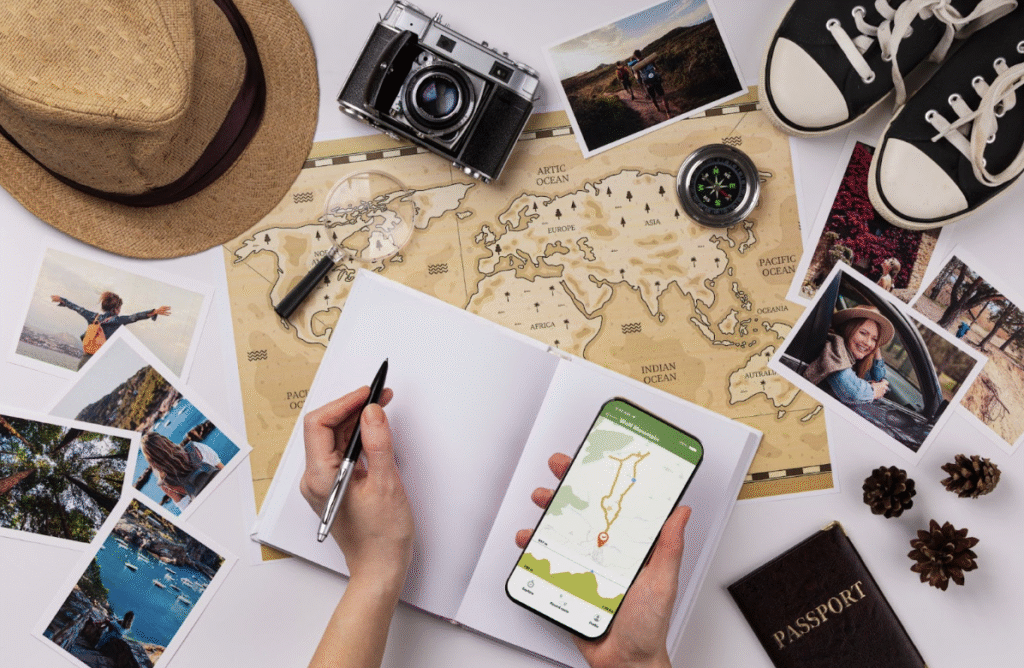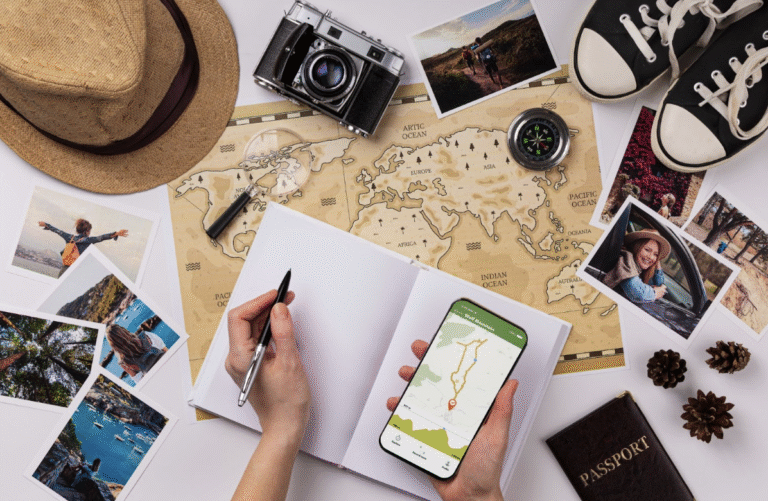
It’s tempting to believe that travel guidebooks are obsolete in a world full of Instagram reels, travel blogs, and smartphone applications that provide real-time recommendations. Yet, despite the rise of digital content, guidebooks thrive on bookshelves and backpacks. For many tourists, they are trusted companions who add structure, wisdom, and motivation to every trip—they are more than just educational resources.
This post explains why travel guidebooks are still valuable in 2025, what makes them special, and how to pick the best one for your upcoming trip.
What Are Travel Guide Books?
Comprehensive written or digital publications that offer in-depth details about a particular nation, area, or city are known as travel guidebooks. Usually, they consist of:
- Background in history and culture
- Top sights and undiscovered treasures
- Useful information (money, safety, and transportation)
- Suggestions for lodging and cuisine
- Recommended routes
- Language and local etiquette advice
The travel guide industry has long been dominated by well-known publishers such as Rick Steves, DK Eyewitness, Fodor’s, Rough Guides, and Lonely Planet. From low-budget travel to in-depth cultural analysis, each contributes its editorial voice and purpose.
Why Guide Books Still Matter
1. Curated, Reliable Content
Professional writers and travel specialists curate guidebooks, in contrast to open forums or crowdsourcing platforms. This implies:
- Fewer promotional materials or slanted reviews
- Current, fact-based, and accurate information
- A cohesive story instead of a disjointed one
Google Reviews and TripAdvisor are useful apps, however, they frequently have conflicting perspectives or phony reviews. You may trust the unambiguous advice that a handbook distils from the cacophony.
2. Offline Accessibility
The fact that a printed or downloaded handbook eliminates the need for internet or Wi-Fi is one of its main benefits. When you’re:
- In Kyoto’s backstreets, lost
- In the middle of a distant national park
- Travelling overseas with inconsistent service
You won’t be left dangling by a book. It doesn’t require an update, is constantly available, and doesn’t use up battery life.
3. Cultural Context and Deeper Insights
Guidebooks explain why a location is important in addition to listing locations. The majority consists of:
- Background information on history
- Cultural background
- Recommended reading
- Tips for language and manners
This enhances your trip and allows you to engage with a place more deeply than a one-sentence social media post ever could.
How to Choose the Right Travel Guide Book
Not every handbook is made equally. Here’s how to choose one that works for you:
📚 1. By Publisher
- Lonely Planet – Excellent for backpackers and general travel guidance, combining useful ideas with cultural awareness..
- Rick Steves – Perfect for first-time travellers to Europe, it offers great history and walking tours.
- DK Eyewitness – With pictures, maps, and illustrations, it’s visually spectacular and ideal for families and visual learners.
- Fodor’s – With a refined, professional tone, it is geared towards mid-range to premium travellers.
- Rough Guides – Like Lonely Planet, but with different paths and a more literary tone.
📍 2. By Region or Niche
Some books focus narrowly on specific interests:
- Food travel guides (e.g., Eater’s travel guides)
- Adventure and hiking (e.g., Moon Travel Guides)
- Eco-tourism and sustainable travel
- Language and cultural immersion guides
If you’re traveling to a single city, go for compact city guides that are easier to carry and more focused.
Are Guide Books Still Worth It?
Of course. Travel guides are an indispensable addition to contemporary resources, even though they might not be your only source of information about where to go. With no pop-ups, advertisements, or scrolling, they provide a more engaging and distraction-free experience. Just thoughtful, motivational stuff that helps you maximise every second.
Reading a paper book, circling locations to see, and charting your route page by page is a surprisingly grounded experience in a digital world where alternatives are unlimited.
Final Thoughts
A decent guidebook can be your ticket to more in-depth experiences because travel is all about discovery. A travel guide book provides the ideal balance of imagination and usefulness, whether you’re exploring the American Southwest by car, ascending Machu Picchu, or meandering through Parisian neighbourhoods.
Therefore, don’t just Google and go before your next vacation. Take out a guidebook, open the first chapter, and start exploring.


